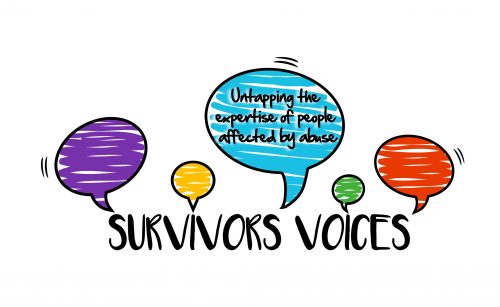
Research meeting July 2023.
How to elicit data from abuse survivors in an ethical and supportive way… is the one-to-one interview the best option?
This discussion put forward arguments for and against the one to one interview. Ultimately the participant should be the person who has agency over whether they want to follow the one-to-one interview format or be engaged in a longer term series of meetings/interviews. Ethics needs to include this agency/choice.
A series of meetings/interviews allows trust to be built and issues to be revisited according to participant needs if they were triggered in or by any sessions.
Some members felt that, as a participant, having control over the narrative and checking out the researcher’s interpretations was crucial. Follow up discussion would allow for this, either in further meetings or focus groups.
It was recognised that the traditional approach to a one-to-one interview where the researcher gathers the data and ‘makes off with it’, not checking meanings or following up, while helpful to the researcher is potential abusive to the participants.
In light of this, survivor-research and researchers may need to push back against suggestions from traditional methodologies of the best practice in studies where participants are not traumatised. Traumatised participants need further care and agency: they may want to revisit what they said before and amend, clarify or rescind statements.
One way to check correct understanding and interpretation by the researcher would be through written data collection. This might be in longer formats such as word documents in response to written questions, or in text, or social media conversations.
The use of focus groups as the data collection method or to investigate the researcher meaning making were discussed as useful. However, they demand much of the researcher and may make for added pressure within the timeframe of the study and the resources (personal and practical) available to the researcher.
Group format execution with abuse-survivors needs careful consideration to place trustworthiness, transparency and agency front and centre. Group formats may require additional support structures for researcher and participants.
Prompts for discussion in focus groups, and of use in one to one interactions included:
Dance
Drama
Art
Photographs/images.
The methodology/ technique called ‘photovoice’ was discussed where participants brought images that represented their feelings/experience/memories etc. and used as discussion in group format to distil shared meanings to address the research question (https://photovoice.org/. ). In the final stage an exhibition may be curated (which can be open or invitation only) as a form of accessible dissemination.
A decision was made to invite a speaker to discuss data collection using some of these methods.
I have since invited Nell Hardy (https://www.responseabilitytheatre.com/meet-the-team). Nell will speak in December about art and performance tools for data gathering and dissemination….I CANNOT WAIT!!!!

